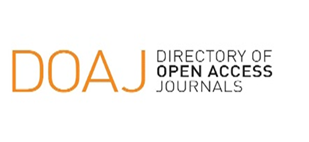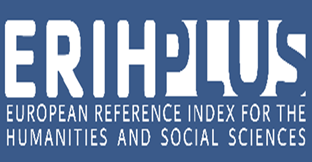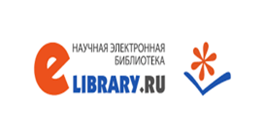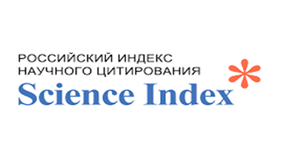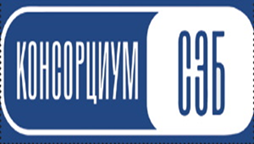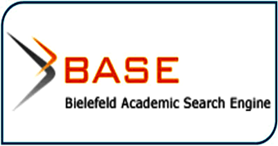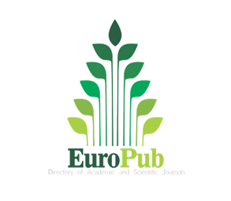Cognitive-dialectical principles of the study of Turkic languages
Views: 356 / PDF downloads: 187
DOI:
https://doi.org/10.32523/2664-5157-2020-2-4-47-58Keywords:
cognition, dialectical principles, philosophy, Turkic languages, conceptual and structural relations, Kazakh languageAbstract
Theoretical and applied principles of cognitive Kazakh linguistics determine both current and current
linguistic trends, as well as new conceptual approaches and methodologies. In this regard, it is important to study the
principles of interrelation of conceptual and structural approaches in Kazakh linguistic science. The reflection in language
of the surrounding reality or the surrounding world, in which the connection of language with thinking is laid, determined
the anthropocentric nature of modern linguistics. Thus, the analysis of language units as a dialectical-dynamic phenomenon
allows us to determine the linguistic and conceptual picture of the world of the Kazakh people, reveal the features of their
ethnic mentality and mentality, and lay the Foundation for the conceptual base of the study of the Turkic languages as a
whole. As a result, the conceptual methodology proved to be very fruitful for significant diachronic and synchronic studies
not only for the Kazakh language, but also for other Turkic languages. The conceptual and cognitive theory of language
cognition began to form in Kazakh linguistics in the 20-30s of the XX century at the intersection of language, philosophy,
and psychology, and it is closely related to the comparative and structural approaches to the knowledge of human existence,
the connection of language with thinking. The smooth transition of structural principles into the element of philosophical,
logical and cognitive directions became the basis for semantic research in the modern Kazakh language. The article reveals
the conceptual and structural connections of the Kazakh language through the analysis of language units extracted from the
research of Kazakh scientists in diachrony and synchrony.
Downloads
Reference
Ývarov A.I. Nelııneınaıa dıalektıka – fılosofskıı metod planetarnogo razýma [Non-linear dialectics - the philosophical method of planetary mind]. Sb.naých.trýdov. Aktýalnye problemy sotsıalno-gýmanıtarnyh naýk 2000 [Collection of scientific works. Actual problems of social sciences and humanities 2000]. // http: //www. Hf. Msiu.ru/nauka 1-5 htm [in Russian].
Danıelıan N.V. K voprosý o sýnostı dıalektıkı? [On the question of the essence of dialectics?]. Sb. Aktýalnye voprosy dıalektıkı (ıstorıko-fılosofskıe aspekty) – Tezısy HIII-ı ejegodnoı naýchno-praktıcheskoı konf. kafedry fılosofıı RAN [Collection. Topical Issues of Dialectics (Historical and Philosophical Aspects). Abstracts of the XIIIth Annual Scientific and Practical Conf. Department of Philosophy, RAS]. 31ıanvarıa – 1 fevralıa. – Moskva, 2000. – P. 59 -61//http://libelli.ru/works/ifran/ifran3.htm#%D0%B8%D0%BB%D0%B8%20%D0%B4%D0%BE%20%D0%BF%D0%BE%D1%81%D0%BB%D0%B5%D0%B4%D0%BD%D0%B5%D0%B3%D0%BE.[in Russian].
Loılın A.N., Loılına M.A. Dıalektıka metodov ı naýchnogo poznanııa [Dialectic of methods and scientific knowledge]. In: Sb. Aktýalnye voprosy dıalektıkı (ıstorıko-fılosofskıe aspekty) – Tezısy HIII-ı ejegodnoı naýchno-praktıcheskoı konf. kafedry fılosofıı RAN [Collection. Topical Issues of Dialectics (Historical and Philosophical Aspects). Abstracts of the XIIIth Annual Scientific and Practical Conf. Department of Philosophy, RAS]/ 31 ıanvarıa – 1 fevralıa. - Moskva, 2000. – P. 56 – 59. [in Russian].
Postovalova V.I. Iazyk kak deıatelnost. Opyt ınterpretatsıı kontseptsıı V.Gýmboldta [Language as an activity. The experience of interpreting the concept of W. Humboldt]. Moscow, «Naýka», 1982. 222 p. [in Russian].
Iskakov R., Gabıtov T. Logıka [Logics]. (Almaty, «Rarıtet», 2004, 232 p.). [in Kazakh].
Baıtýrsynov A. Sochınenııa. Stıhı, perevody, ıssledovanııa [Compositions. Poems, translations, research]. Almaty, Jazýshy, 1989. 320 p. [in Kazakh].
Jýbanov K. Issledovanııa po kazahskomý ıazyký [Studies in the Kazakh language]. Almaty, Gylym, 1999. 581 p. [in Kazakh].
Amanjolov S. Osnovy teorıı kazahskogo ıazyka [Fundamentals of the theory of the Kazakh language]. Almaty, Naýchno-ızdatelskıı tsentr «Gylym», 2002. 368 p. [in Kazakh].
Trýdy akademıka Nygmeta Saýranbaeva. Tom II. [Academician Nygmet Sauranbaev’s works. Volume II]. (Almaty, 2000, 392 p.). [in Kazakh].
Saýranbaev N.T. Problemy kazahskogo ıazykoznanııa. Izbrannye trýdy [Problems of Kazakh linguistics. Selected Works]. Alma-Ata, «Nauka», 1982. 352 p. [in Kazakh].
Kaıdar A. Narodnaıa mýdrost (tolkovyı slovar kazahskıh poslovıts ı pogovorok ı ıssledovanıe) [Folk wisdom (explanatory dictionary of Kazakh proverbs and sayings and research)]. Almaty, toganaı T., 2004. 560 p. [in Kazakh].
Kaıdar A. Aktýalnye problemy kazahskogo ıazyka [Actual problems of the Kazakh language]. Almaty, Ana tılı, 1998. 304 p. [in Kazakh].
Kaıdar A. Qanly. Almaty, «Daık-Press», 2004. 610 p. [in Kazakh].
Syzdyk R. Slova govorıat [Words speak]. Almaty, Arys, 2004. 232 p. [in Kazakh].
Syzdyk R. Abaı ı natsıonalnyı lıteratýrnyı ıazyk kazahov [Abai and the national literary language of the Kazakhs]. Almaty, Arys, 2004. 616 p. [in Kazakh].
Syzdyk R. Sıla slova [The power of a word]. Almaty, Sanat, 1997. 224 p. [in Kazakh].
Syzdyk R. Pletenııa ız slov Abaıa [Weaving from the words of Abai]. Almaty, Arys, 2004. 208 p. [in Kazakh].
Orazov M. Semantıka kazahskogo ıazyka [Semantics of the Kazakh language]. Almaty, Raýan, 1991. 216 p. [in Kazakh].
Downloads
Published
How to Cite
Issue
Section
License
Copyright (c) 2021 Turkic Studies Journals

This work is licensed under a Creative Commons Attribution-NonCommercial 4.0 International License.







